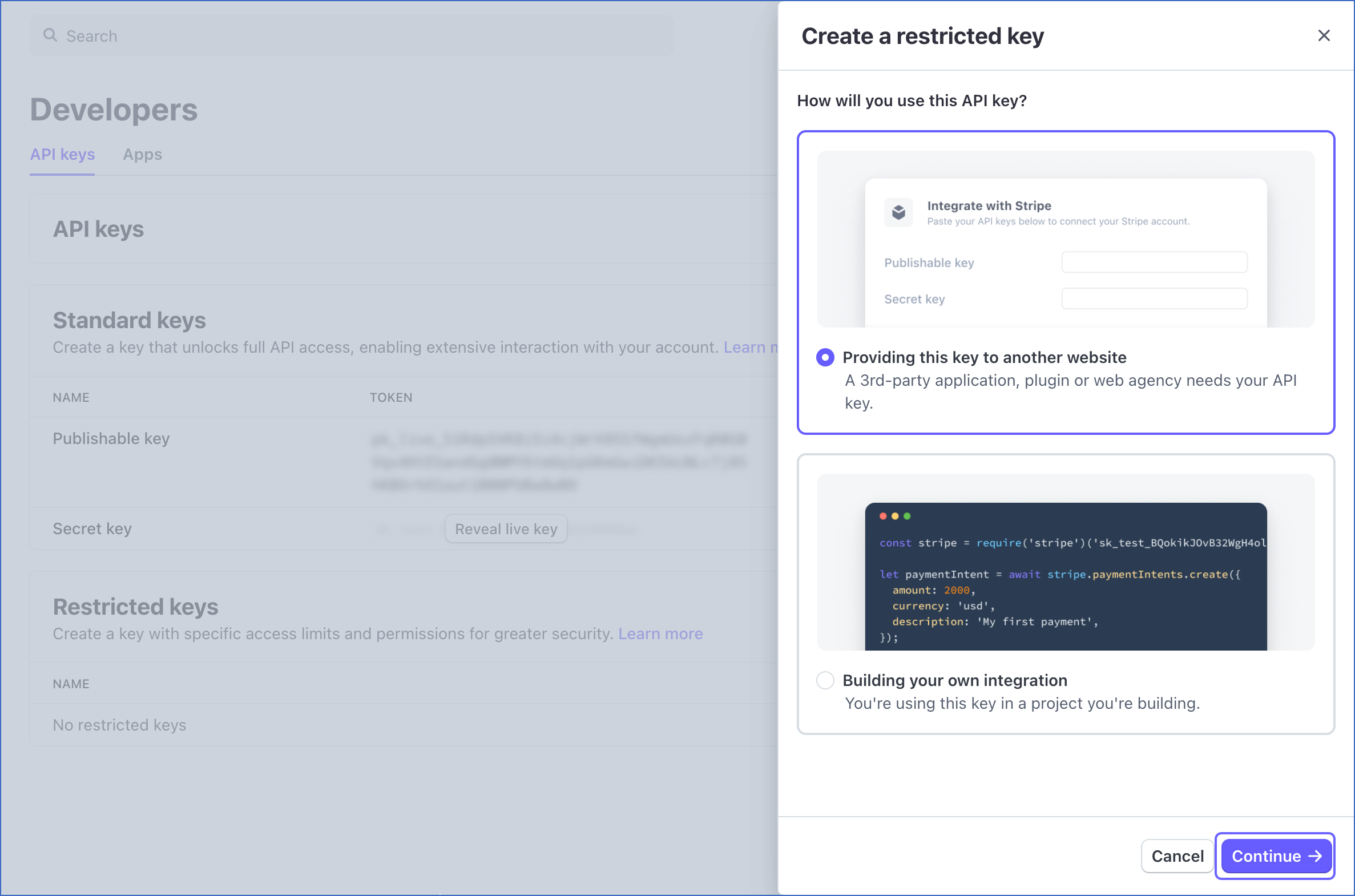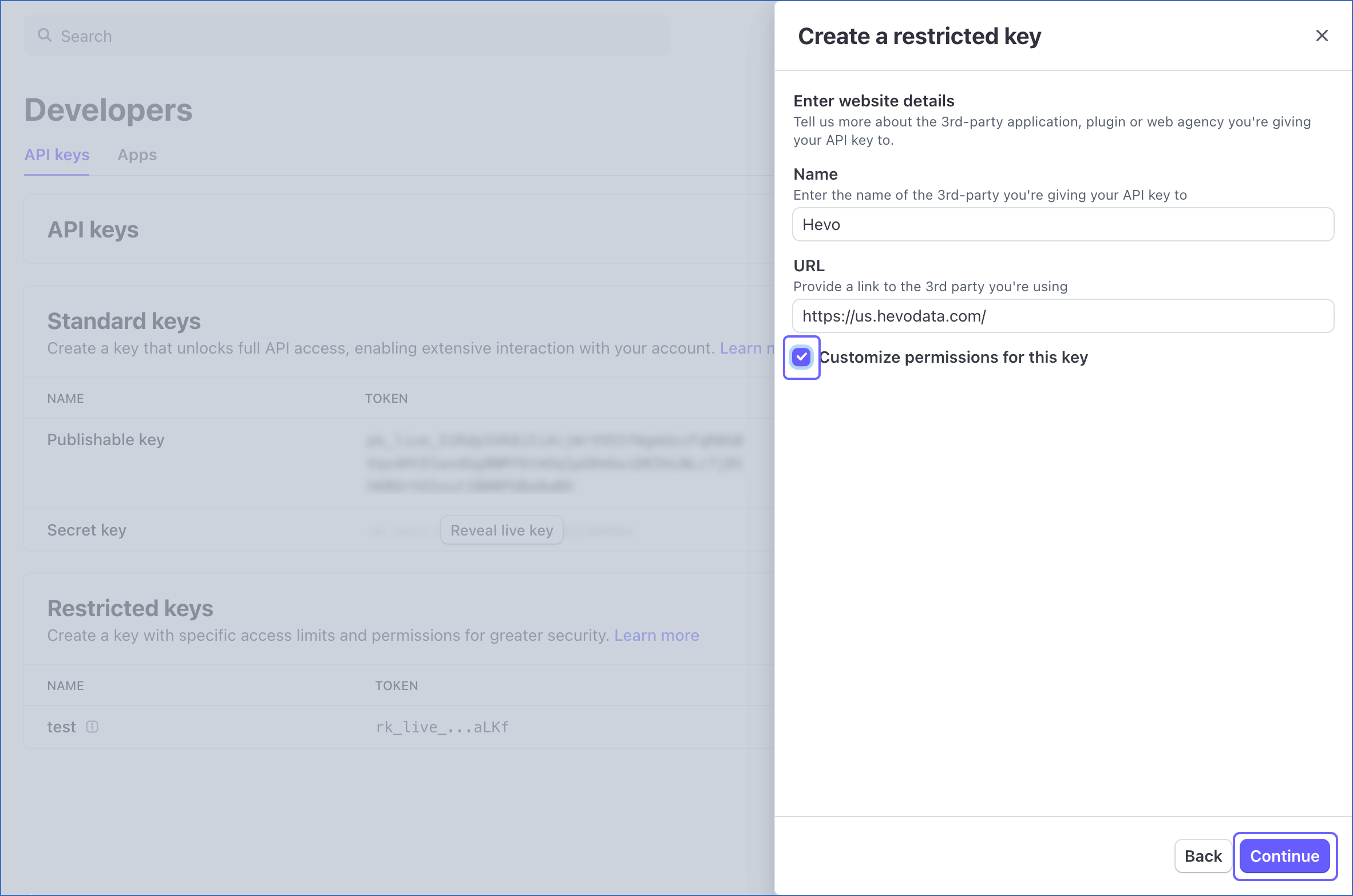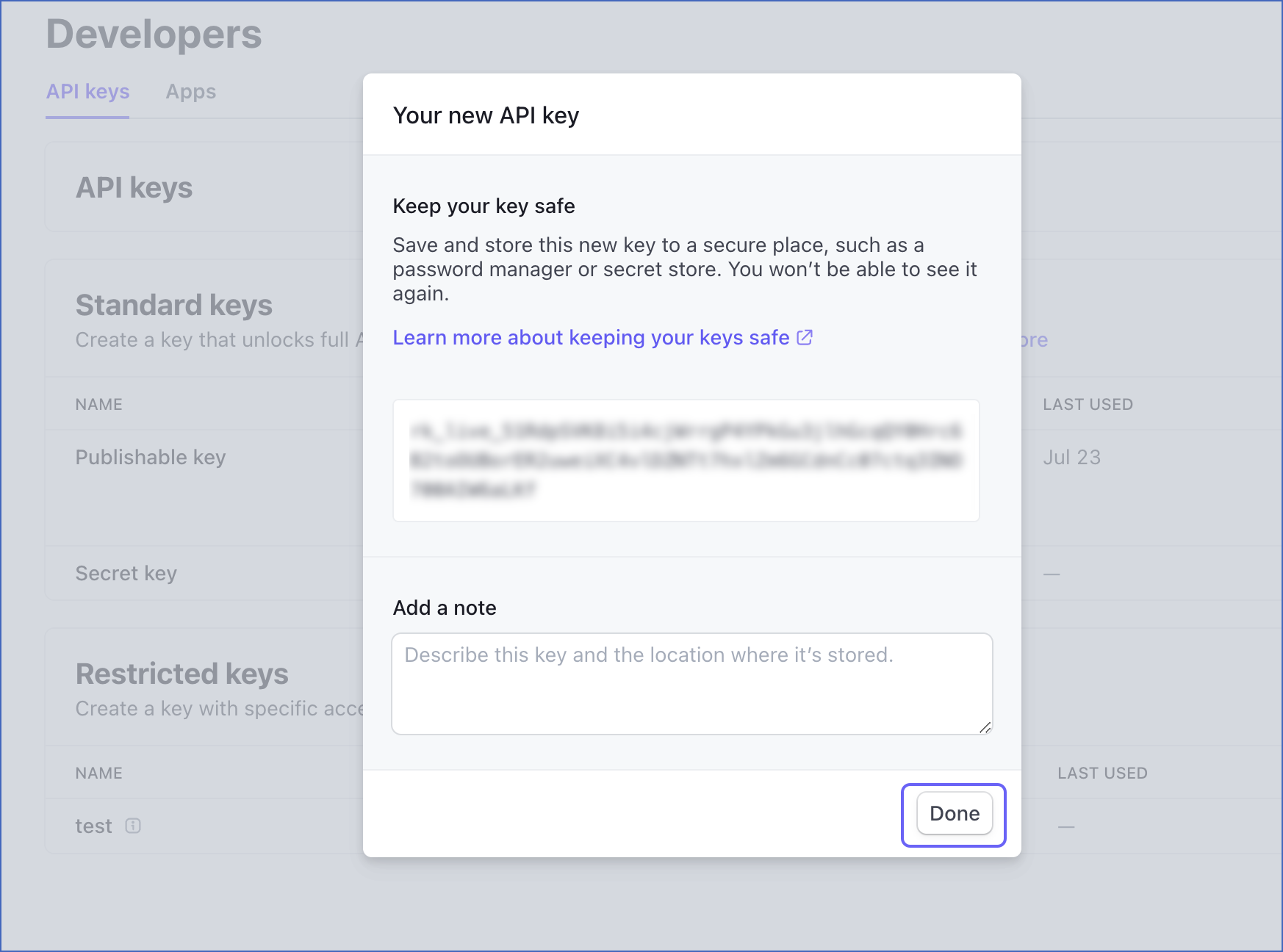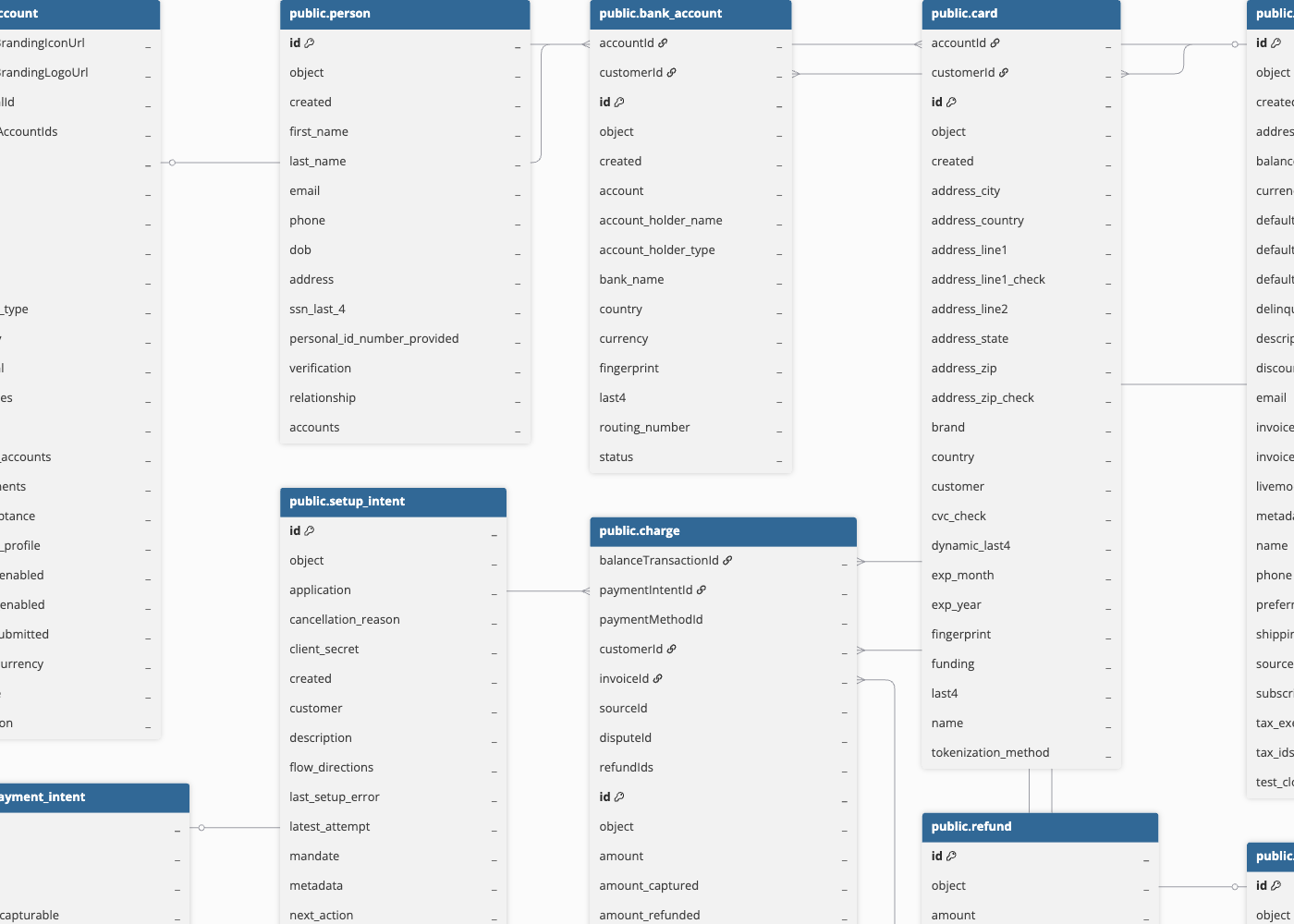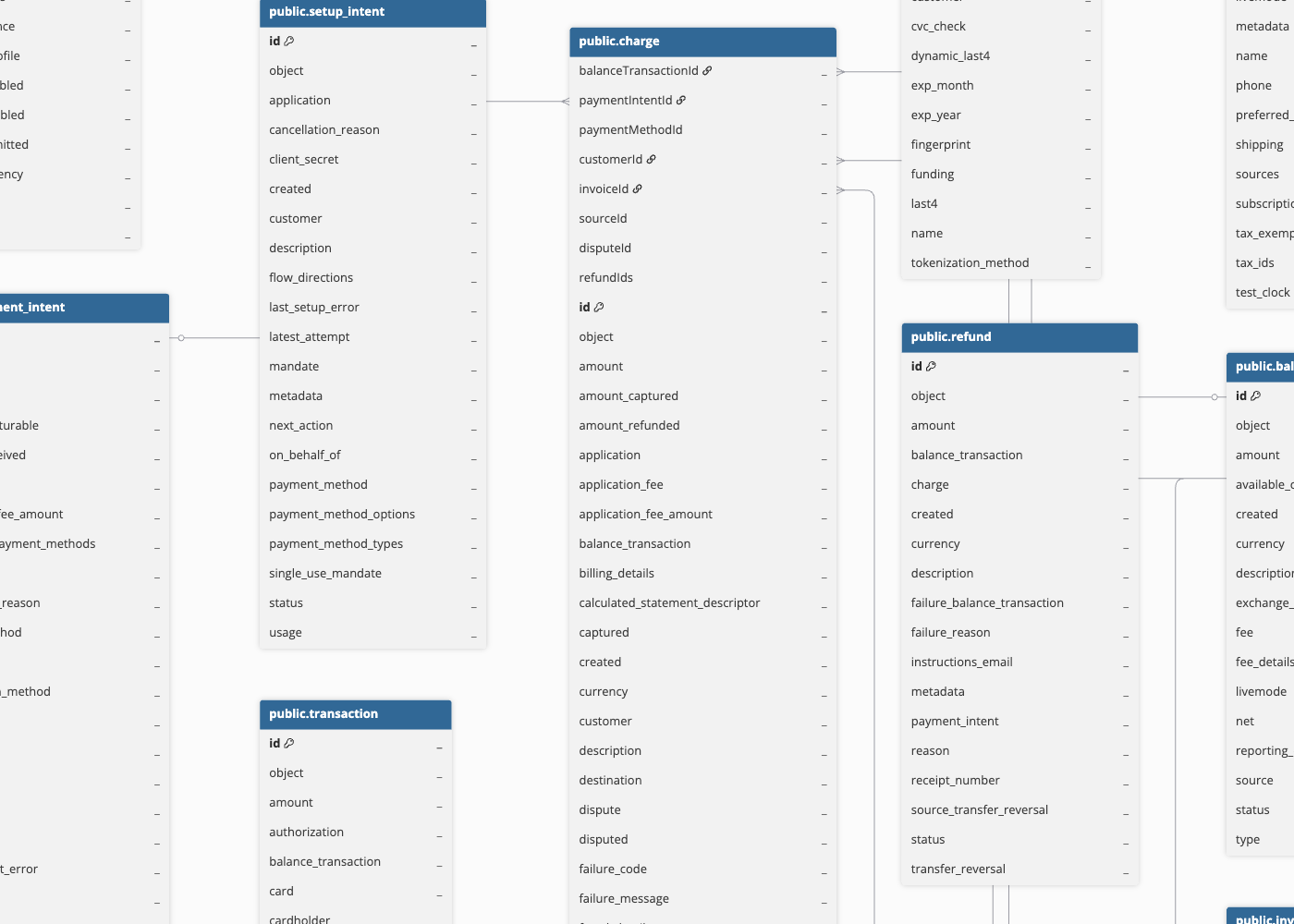Stripe is a payment gateway that facilitates payments (in person or online) by transferring money between a merchant account and a payment processor. It can be incorporated into websites and mobile applications and provides technical, fraud prevention and banking infrastructure to facilitate online payments.
Source Considerations
-
Stripe informs the user of a change in an object in their account through an event. For example, when a charge succeeds, it creates a charge.succeeded event. Stripe maintains a record of all the events that it created for the past 30 days in an Events object. Hevo refers to this object while replicating the data to the Destination to make sure all the deletes and updates are captured.
Note: As of Release 2.19, the Events object is ingested by default and does not appear on the Select Objects page. For Pipelines created prior to Release 2.19, if you have skipped the Events object for ingestion, you need to contact Hevo Support to include it.
-
Pausing a Pipeline for more than 30 days can lead to a loss of data, as the Events object tracks updates and deletes of the past 30 days only.
-
Metadata fields in Stripe are custom key-value pairs that you attach to an object. You use them to store extra information in a structured form. Stripe does not update the Events object when only the metadata of an object changes. This behavior applies to objects, such as Charge, Customer, and Subscription, where updates are tracked using Stripe events. As Hevo relies on these events to track incremental changes, metadata-only updates are not ingested. Hevo captures metadata changes only when a non-metadata field on the same object is updated.
For example, if you update only the
order_idfield in the metadata of a Charge, Stripe does not generate an event for the update. As a result, Hevo does not update the value oforder_idin the Destination table. The updated metadata becomes available only after a subsequent change to a non-metadata field, such asdescriptionthat triggers a charge.updated event.
Limitations
-
For new and existing Pipelines, Hevo replicates only the data that has been deleted after Release 1.86.
-
Hevo does not support ingesting data from connected accounts created on the Connect platform. Hence, if your Account object contains details of both connected and non-connected Stripe accounts, Hevo does not ingest any data from it. To ingest incremental data from your non-connected Stripe accounts, you must restart the Account object.
-
Hevo does not load data from a column into the Destination table if its size exceeds 16 MB, and skips the Event if it exceeds 40 MB. If the Event contains a column larger than 16 MB, Hevo attempts to load the Event after dropping that column’s data. However, if the Event size still exceeds 40 MB, then the Event is also dropped. As a result, you may see discrepancies between your Source and Destination data. To avoid such a scenario, ensure that each Event contains less than 40 MB of data.
See Also
Revision History
Refer to the following table for the list of key updates made to this page:
| Date | Release | Description of Change |
|---|---|---|
| Jan-02-2026 | NA | Added a Source consideration about metadata fields not being tracked. |
| Nov-07-2025 | NA | Updated the document as per the latest Hevo UI. |
| Oct-16-2025 | NA | Updated sections, Schema and Primary Keys, and Data Model to add information about the Stripe Treasury objects supported by Hevo. |
| Sep-18-2025 | NA | Updated section, Configuring Stripe as a Source as per the latest UI. |
| Jul-24-2025 | NA | Updated section, Obtaining the API Key as per the latest Stripe UI. |
| Jul-10-2025 | NA | Updated section Stripe Schema v2 to add more information on schema v2. |
| Jul-07-2025 | NA | Updated the Limitations section to inform about the max record and column size in an Event. |
| Jan-07-2025 | NA | Updated the Limitations section to add information on Event size. |
| Dec-23-2024 | 2.31.1 | Added an object to section, Data Model. |
| Nov-05-2024 | NA | Updated sections, Configuring Stripe as a Source and Object Selection as per the latest Hevo UI. |
| Jun-12-2024 | NA | Added a limitation about Hevo not supporting connected accounts. |
| Mar-05-2024 | 2.21 | Updated the ingestion frequency table in the Data Replication section. |
| Feb-05-2024 | 2.19 | Updated sections, Configuring Stripe as a Source to add information about Stripe Schema v2. - Schema and Primary Keys to add information about supported schema version. - Data Replication to add a note about incremental data ingestion. |
| Jan-10-2024 | 2.19 | Updated section, Source Considerations to inform users about the removal of the Events object from the Select Objects list. |
| Jan-09-2024 | NA | Updated section, Data Replication to add a note about incremental data ingestion. |
| Feb-20-2023 | NA | Updated section, Configuring Stripe as a Source to update the information about historical sync duration. |
| Dec-07-2022 | 1.99 | - Updated section, Updated and Deleted Objects to add new objects in the list for which Hevo supports replication of updated and deleted records. - Updated section, Data Replication to reorganize the content for better understanding and coherence. |
| Sep-21-2022 | 1.98 | Updated sections, Schema and Primary Keys, and Data Model to add information about the new Stripe objects supported by Hevo. |
| Aug-24-2022 | 1.96 | Added section, Object Selection. |
| Jul-27-2022 | NA | - Renamed section, Creating the API Key to Obtaining the API Key. - Updated section, Obtaining the API Key to include information about standard and restricted API keys. |
| Apr-11-2022 | 1.86 | - Updated the Data Replication and Source Considerations sections to add information about how Hevo handles deletes in Stripe objects. |
| Mar-07-2022 | 1.83 | Added information about reverse historical load in the Data Replication section. |
| Jan-24-2022 | 1.80 | Added information about configurable historical sync duration in the Data Replication section. |
| Jan-03-2022 | 1.79 | Added objects to section, Data Model. |
| Oct-25-2021 | NA | Added the Pipeline frequency information in the Data Replication section. |
| Aug-23-2021 | 1.70 | Added the section, Source Considerations. |

